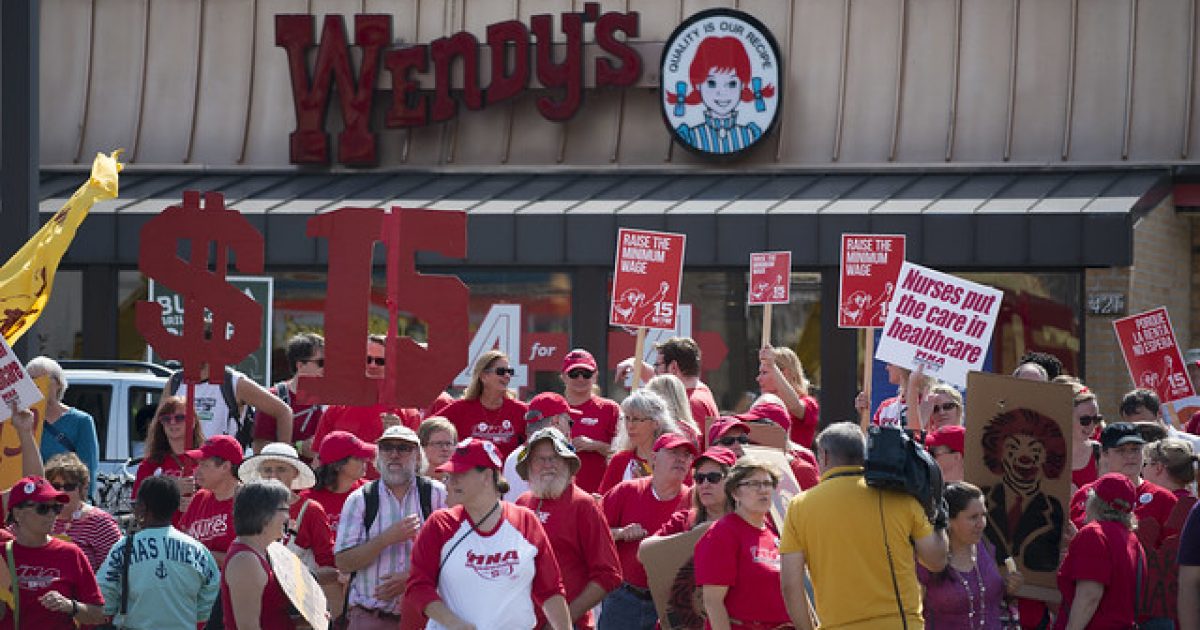
The U.S. House voted for a $15 per hour minimum wage on Thursday, July 19, 2019.
The $15 minimum wage is at the top of the Progressive agenda with many 2020 presidential candidates in the Democratic Party getting behind it. House Speaker Nancy Pelosi declared, “This is about workers, it’s about their economic and financial security, and today is a bright day because it affects so many people in our country.”
The Raise the Wage Act was introduced by Virginia Congressman Bobby Scott and passed by a 231-199 vote. The bill gradually increases the federal minimum wage from $7.25 to $15 per hour. The last time the federal minimum wage was increased was in 2009.
In March, a similar minimum wage proposal was blocked when lawmakers from rural and Republican-leaning zones expressed concerns about this policy. They argued it would punish certain small businesses, especially in rural areas with a lower cost of living than large urban areas.
Due to Republican control of the Senate, this bill will unlikely make it to President Trump’s desk. Several Republican leaders view the latest minimum wage proposal as a job-killing scheme.
House Minority Whip Steve Scalise claimed that this scheme would “eviscerate millions of American jobs” based on estimates from a July report from the Congressional Budget Office. This report found that 3.7 million Americans would be left unemployed if this $15 minimum wage were to go into effect.
Scalise commented, “There’s more opportunity than we’ve ever seen. There are more job openings than there are people looking for work. And at that time, you would think the Democrats would want to be working with us to build on that economic success, and instead you see Speaker Pelosi bringing this bill to the floor that would eviscerate millions of American jobs.”
This bill will ultimately meet its demise in the U.S Senate. However, the $15 minimum wage is far from dead. If anything, it is gaining momentum as economic ignorance becomes the norm. Governments cannot create higher wages by law, but they are rather proficient at generating more unemployment.
Minimum wage laws like the $15 hourly wage proposal impose artificially high wages that most business owners could not afford to pay in normal market circumstances. As a result, they must lay off workers and/or cut worker hours.
Yes, there are real affordability problems in many of America’s urban centers. That being said, the $15 minimum wage is no solution. Our elected officials should instead look at reforming our tax system , rolling back the regulatory state, and liberalizing zoning laws to make these areas more affordable.
Arbitrarily raising the minimum wage will only create unemployment and deny low-skilled workers and minorities the ability to integrate themselves into the workforce.



